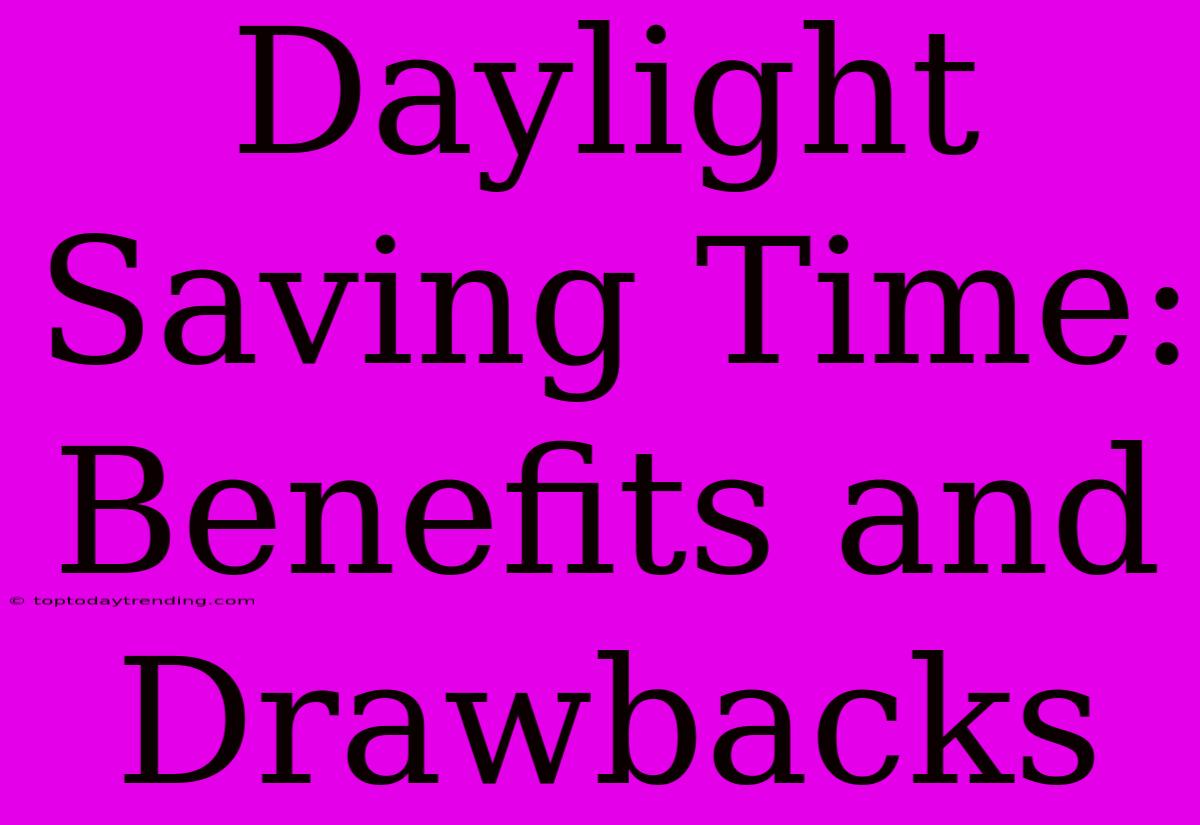Daylight Saving Time: Benefits and Drawbacks
Daylight Saving Time (DST), also known as Summer Time, is a practice of adjusting clocks forward by one hour during the summer months. This shift aims to maximize daylight hours during the evening, potentially leading to energy savings and increased economic activity. However, DST has also been a subject of controversy, with critics arguing that its benefits are debatable and its negative impacts outweigh the advantages. This article will delve into the potential benefits and drawbacks of Daylight Saving Time, exploring both sides of the argument.
Potential Benefits of Daylight Saving Time:
1. Energy Savings:
One of the primary arguments for DST is its potential to conserve energy. By extending daylight hours into the evening, the theory suggests that people will rely less on artificial lighting, reducing energy consumption. Studies have shown mixed results, with some research suggesting a minor decrease in electricity usage while others have found no significant impact.
2. Reduced Crime Rates:
Another purported benefit of DST is a reduction in crime rates. The idea is that increased daylight hours in the evening could deter criminal activity. However, research on this topic is inconclusive, and some studies suggest no correlation between DST and crime rates.
3. Economic Benefits:
Proponents of DST argue that it can boost the economy by increasing leisure and recreational activities during the extended daylight hours. This, in turn, could lead to greater spending in retail, dining, and tourism sectors. However, the extent of this economic impact is difficult to quantify.
Potential Drawbacks of Daylight Saving Time:
1. Disruption to Sleep Patterns:
The most significant criticism of DST is its disruptive effect on sleep patterns. Shifting the clock forward can lead to sleep deprivation, particularly for young children and older adults. This, in turn, can impact health, productivity, and overall well-being.
2. Health Risks:
There is some evidence suggesting that DST could increase the risk of certain health issues, such as heart attacks, strokes, and mood disorders. The shift in sleep patterns and circadian rhythm could contribute to these health problems.
3. Negative Impact on Productivity:
While DST aims to increase daylight hours, it can also lead to reduced productivity. The shift in sleep patterns can make people feel tired and sluggish, impacting their performance at work or school.
4. Inconsistencies and Confusion:
DST can create confusion and inconsistencies, particularly for businesses and individuals operating across time zones. Coordinating schedules and communication can become challenging when clocks are adjusted.
5. Environmental Concerns:
Although DST is often touted as an energy-saving measure, some argue that it could actually have negative environmental impacts. The increased use of energy during certain hours could contribute to air pollution and greenhouse gas emissions.
Conclusion:
The debate surrounding Daylight Saving Time is complex and multifaceted. While it offers some potential benefits, such as energy savings and increased economic activity, it also comes with significant drawbacks, including sleep disruption, health risks, and productivity issues.
Ultimately, the decision of whether to implement DST or not is a political one, with various factors to consider. It is important for policymakers and individuals alike to weigh the potential benefits and drawbacks carefully and make informed decisions based on the available evidence.

